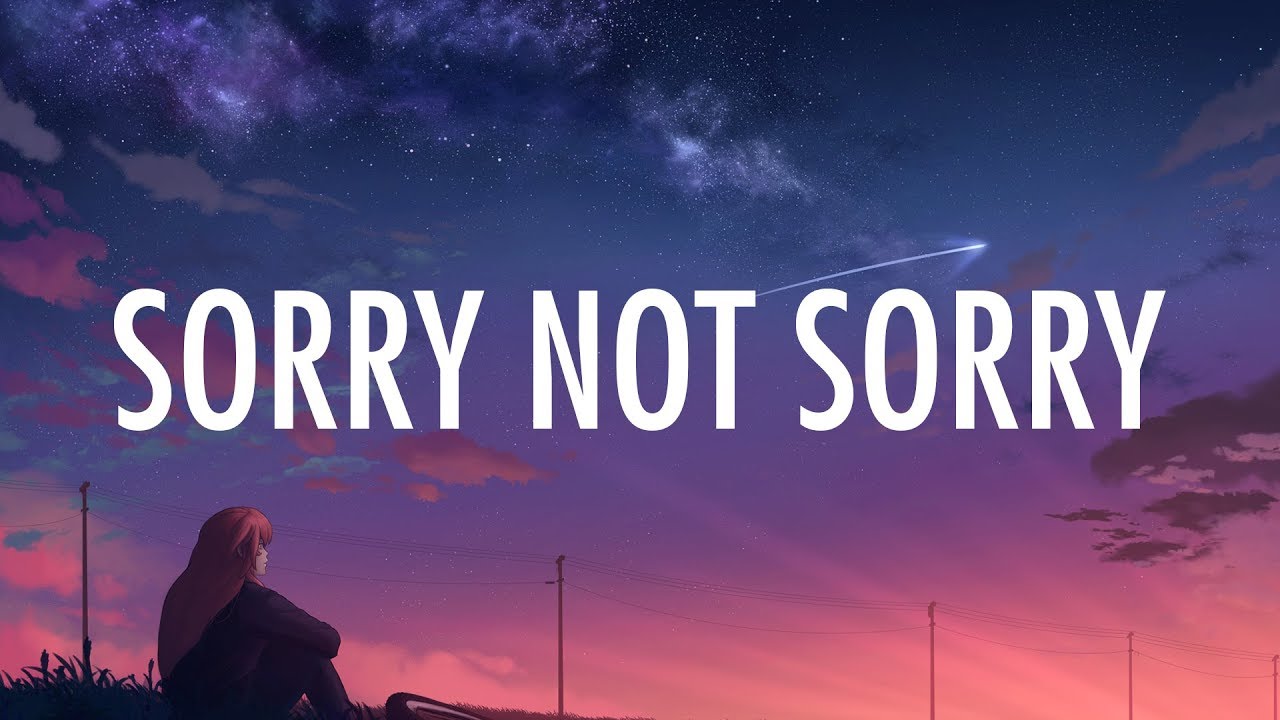Sorry, Not Sorry
Why public figures stopped apologizing
In November 2017, Louis C.K. wrote an apology. Its four paragraphs, published in The New York Times, were a matter of expediency: The paper had just confirmed long-standing rumors that the comedian had, on several occasions, masturbated in front of unwilling female colleagues. But the apology was notable because—compared with those offered by other celebrities who’d been caught in the #MeToo movement’s accountabilities—it was a relatively good one. It clearly admitted wrongdoing. It acknowledged the women C.K. had harassed. It suggested that he would find ways to atone.
“The hardest regret to live with is what you’ve done to hurt someone else,” C.K. wrote. “And I can hardly wrap my head around the scope of hurt I brought on them.”
A year later, however, a very different Louis C.K. emerged. In a December 2018 stand-up set that leaked to YouTube, the formerly apologetic comedian was now apoplectic: He raged at political correctness; at the student survivor-activists of Parkland, Florida; at the way his career had met the business end of #MeToo. Whatever C.K. might have done, the more salient fact, apparently, was what had been done to him. “My life is over; I don’t give a shit,” he fumed. “You can—you can be offended; it’s okay. You can get mad at me. Anyway …”
Apologetic Louis C.K. operated within that old paradigm. Apoplectic Louis C.K., however, occupies a newer one—in which the true sign of power is not responsibility but impunity.
“I will begin my presidency with a jobs tour,” Mitt Romney said, accepting the Republican presidential nomination in 2012. “President Obama began with an apology tour.”It was a line of attack Romney would return to many times. Obama, he argued, was that most shameful of things: an apologizer—for American history, for American values, for America itself. The mild-mannered Romney was seeking the presidency at a time when American politics was manifesting, ever more eagerly, as blood sport; mocking the sitting president as sorry in every sense was one of the concessions he made to the moment. Romney named his 2010 book No Apology: The Case for American Greatness. This was a slightly subtler version of a title on a Heritage Foundation report the year before: “Barack Obama’s Top 10 Apologies: How the President Has Humiliated a Superpower.”
The current steward of American humiliation has taken the logic of sorry you’re sorry to a new extreme. Donald Trump has converted his resentment of apology into a political identity. (“He’s not into apologizing,” a former administration official told Politico. “Generally speaking, he’s not a big believer in backing down.”) This summer, after a rally in which the president mistook a supporter for a detractor and belittled him accordingly, the CNN reporter Kaitlan Collins sent a tweet: “President Trump called and left a voicemail apologizing to the man he mocked as overweight, a White House official says. He confused him for a protester last night in New Hampshire. ‘That guy’s got a serious weight problem,’ Trump said. ‘Go home. Start exercising.’ ”
Soon, however, Collins tweeted a follow-up: “Correction: Trump did not apologize, a White House official tells me. He phoned the supporter, left him a message thanking him for his support, but did not use the words ‘sorry’ or ‘apologize.’ ”
That the official felt the need to issue this clarification was telling. And it warned of an array of anti-atonements to come. In September, Trump tweeted that Hurricane Dorian, the storm then wreaking havoc in the Bahamas, would reach the shores of Alabama. This was incorrect. A different president might have acknowledged the mistake and moved on. Trump, however, took another tack—which is to say that he reportedly took a Sharpie to a poster-size model of the storm, editing the hurricane’s expert-predicted path to conform to his preferences. Public outrage only amplified Trump’s defiance, to the extent that, soon, staffers at the National Oceanic and Atmospheric Administration were ordered to issue a statement backing up his erroneous claim. The federal agency charged with telling the truth about that most fundamental of shared realities—the weather—was made to lie so the president could avoid admitting a mistake. Atmospheric pressure can come in many forms.
Biden failed to mention that he had been the chair of the Judiciary Committee during the hearing—that, in fact, the person in the best position to have done something to help Hill had been Joe Biden. But the kind of slippery nonapology he offered—at an event called the Biden Courage Awards—was standard rhetoric for Biden, so common that the Hill family had turned it into a joke. Whenever the doorbell rang unexpectedly, Hill said last year, someone in the house might shout, “Oh, is that Joe Biden coming to apologize?”
In some ways it’s understandable, this widespread apology aversion. The America of the current moment is heated and hasty, and an apology can be easily weaponized. “There is less kindness in public life, more shaming, and an absence of leadership at the top that models accountability,” the psychologist Harriet Lerner, the author of Why Won’t You Apologize?, told me.
Those who do apologize often try to have it both ways: sorry and not sorry, in one cynical stew. Harvey Weinstein, in response to initial reporting about his alleged sexual misconduct, issued an apology in which he promised to listen and learn and make his mom proud. Yet Weinstein, who has been accused of misconduct by more than 90 women, has repeatedly denied ever having had nonconsensual sex.
Mario Batali condensed that sorry-to-not-sorry shift into an email he sent in December 2017: Acknowledging that several of his co-workers had accused him of sexual assault and harassment, the celebrity chef professed regret for his behavior—and then, “in case you’re searching for a holiday-inspired breakfast,” offered up a recipe for cinnamon rolls.
One of the rare times Trump broke his own rule about apologizing—“I said it, I was wrong, and I apologize,” he said, after a recording of him bragging about assaulting women surfaced, just before the final debate of the 2016 election—he reversed course in the space of a few seconds, whatabout-ing his own contrition. “Bill Clinton has actually abused women and Hillary has bullied, attacked, shamed, and intimidated his victims,” Trump said. “We will discuss this more in the coming days. See you at the debate on Sunday.”
There is chaos in our accountabilities. Senator Al Franken, after being accused of kissing or groping eight women, resigned from office; Trump, after being accused by more than 20 women of abuses that range from harassment to rape, has faced no consequences at all.
I’m sorry, said sincerely, is supposed to be the first step toward forgiveness. But forgiveness is difficult to discuss when justice is so unevenly distributed—when there’s no meaningful consensus about who deserves redemption, or under what conditions.
And when humility gets confused with humiliation, defiance becomes a point of pride. The comedian Kevin Hart, after years-old homophobic tweets of his resurfaced late last year, chose not to apologize, saying, “I’m not going to do it, man. I’m going to be me. I’m going to stand my ground.” He stepped down as host of the 2019 Oscars because of it, only to apologize after the fact. The comedian Shane Gillis, after journalists discovered racist and homophobic material in his recent work, offered up, in part, this nonapology: “I’m a comedian who pushes boundaries. I sometimes miss … I’m happy to apologize to anyone who was actually offended by anything I’ve said.” He lost his newly announced job at Saturday Night Live. But he did not lose his career, as some of his defenders had claimed; days later, Gillis was back doing stand-up, making a performance of his own alleged victimhood, joking that he has “been reading every one of my death threats in an Asian accent.”
This is the sorry state of things. If you think of empathy as an inconvenience, it becomes easy to see remorselessness as an act of resistance. It becomes easy to dismiss the people who would prefer not to be discussed using slurs, or who would prefer not to be sexually harassed—people who have voices in ways they did not before—as purveyors of political correctness. It becomes easy to see apologies as weapons in a much bigger war. Louis C.K., who had once promised to listen and learn, found it preferable, in the end, to do the opposite. In his new act, he mocked and resented and seethed. He made a performance of his anger. And his audience cheered.

